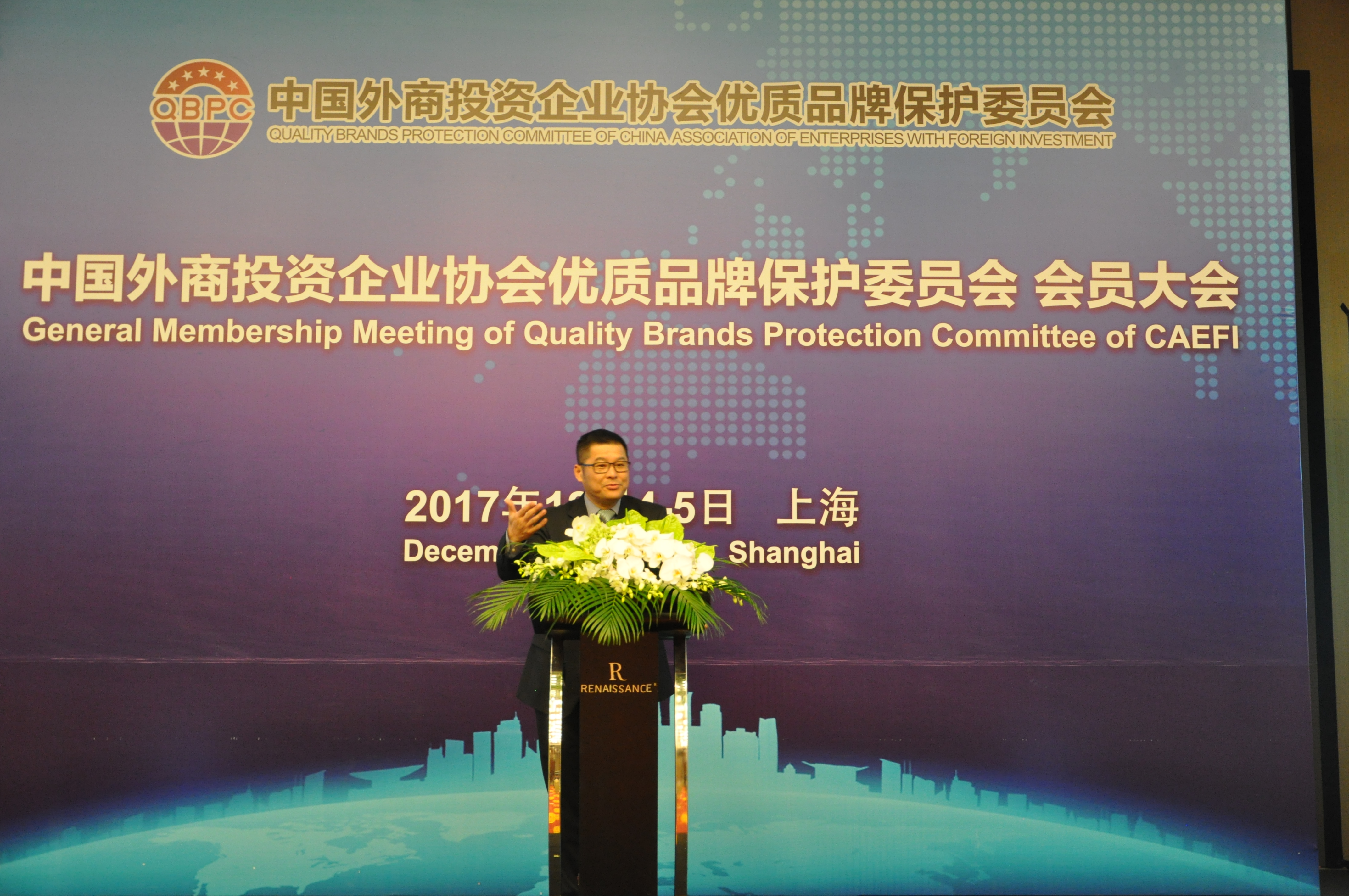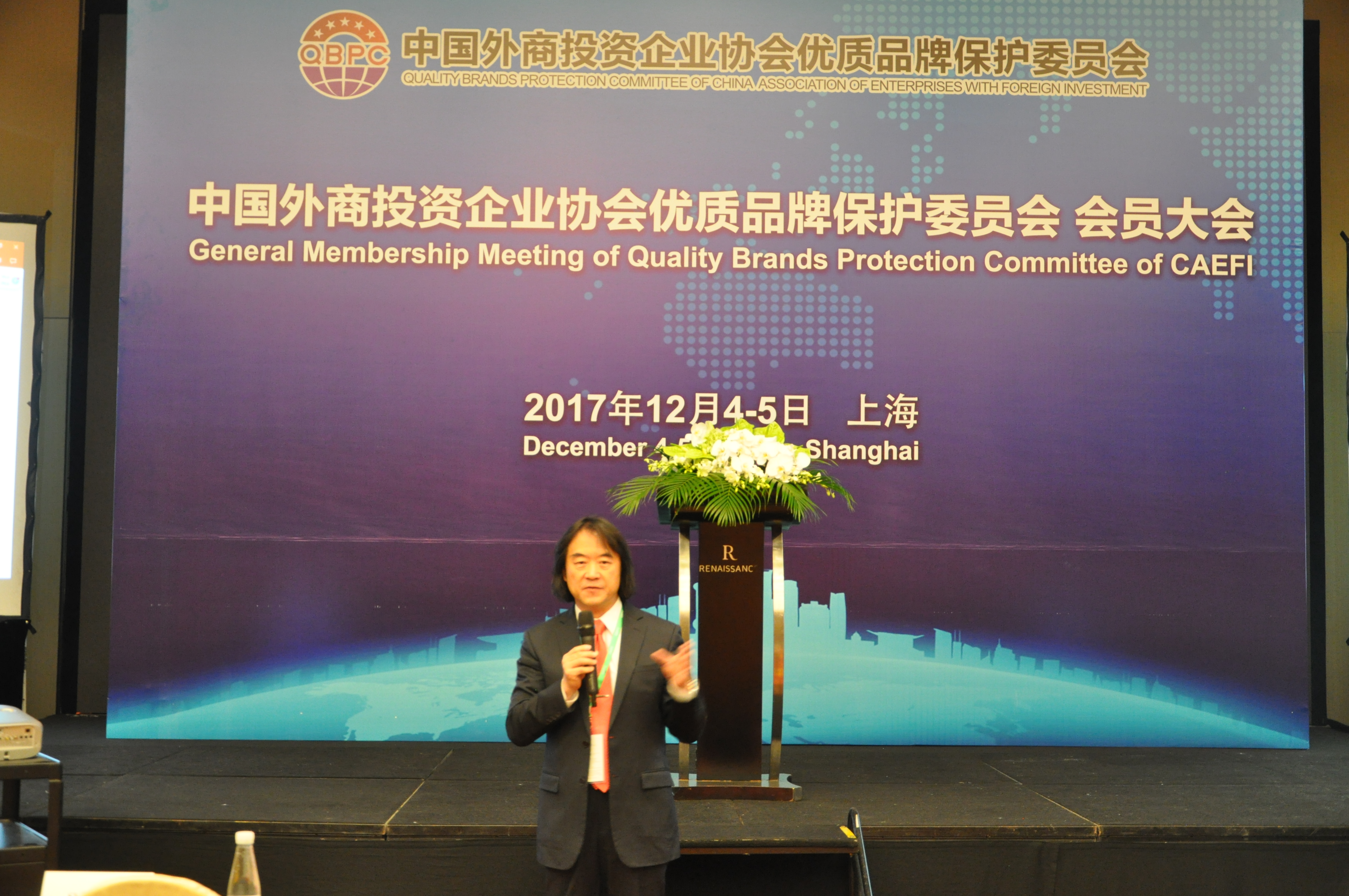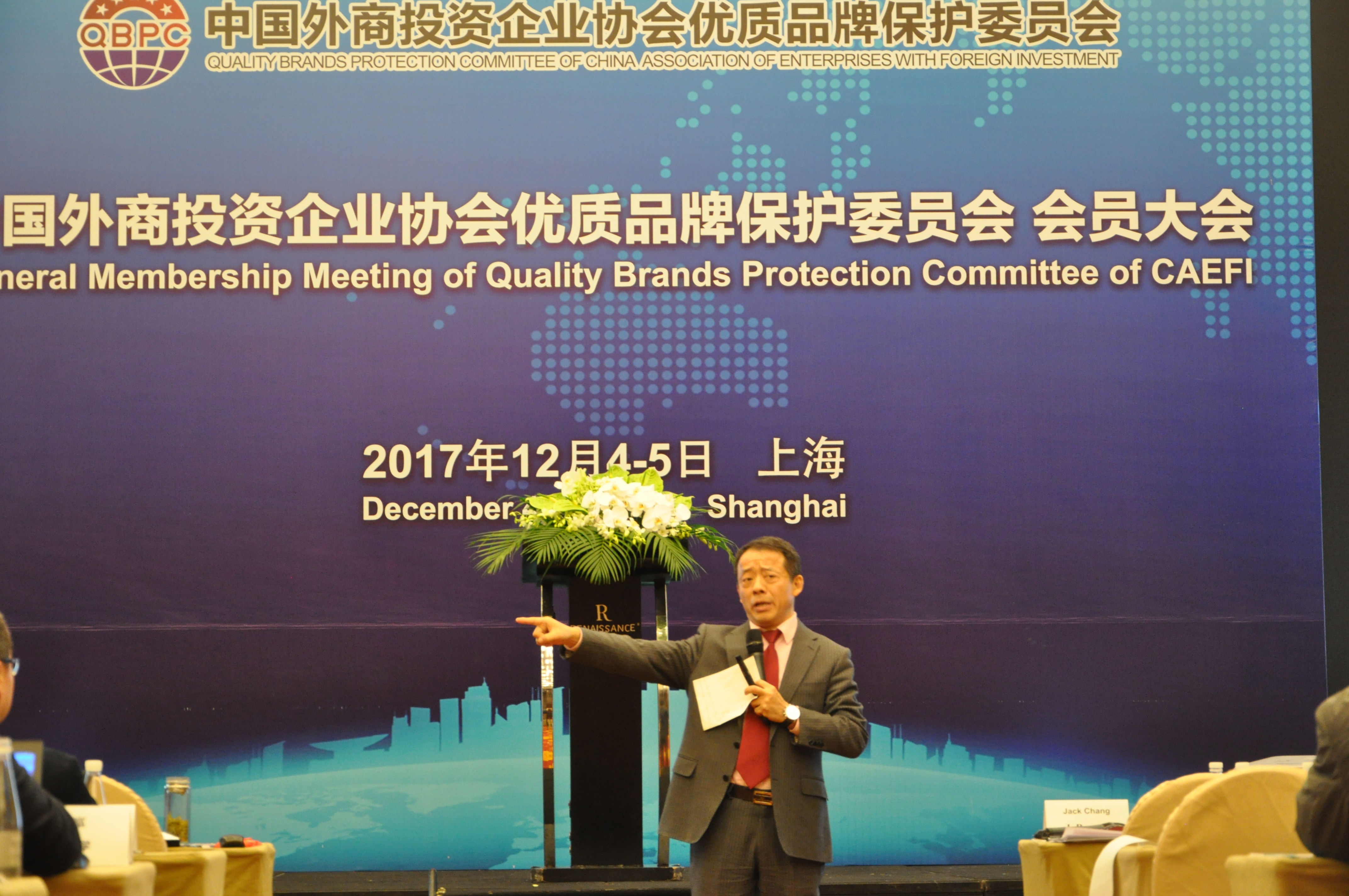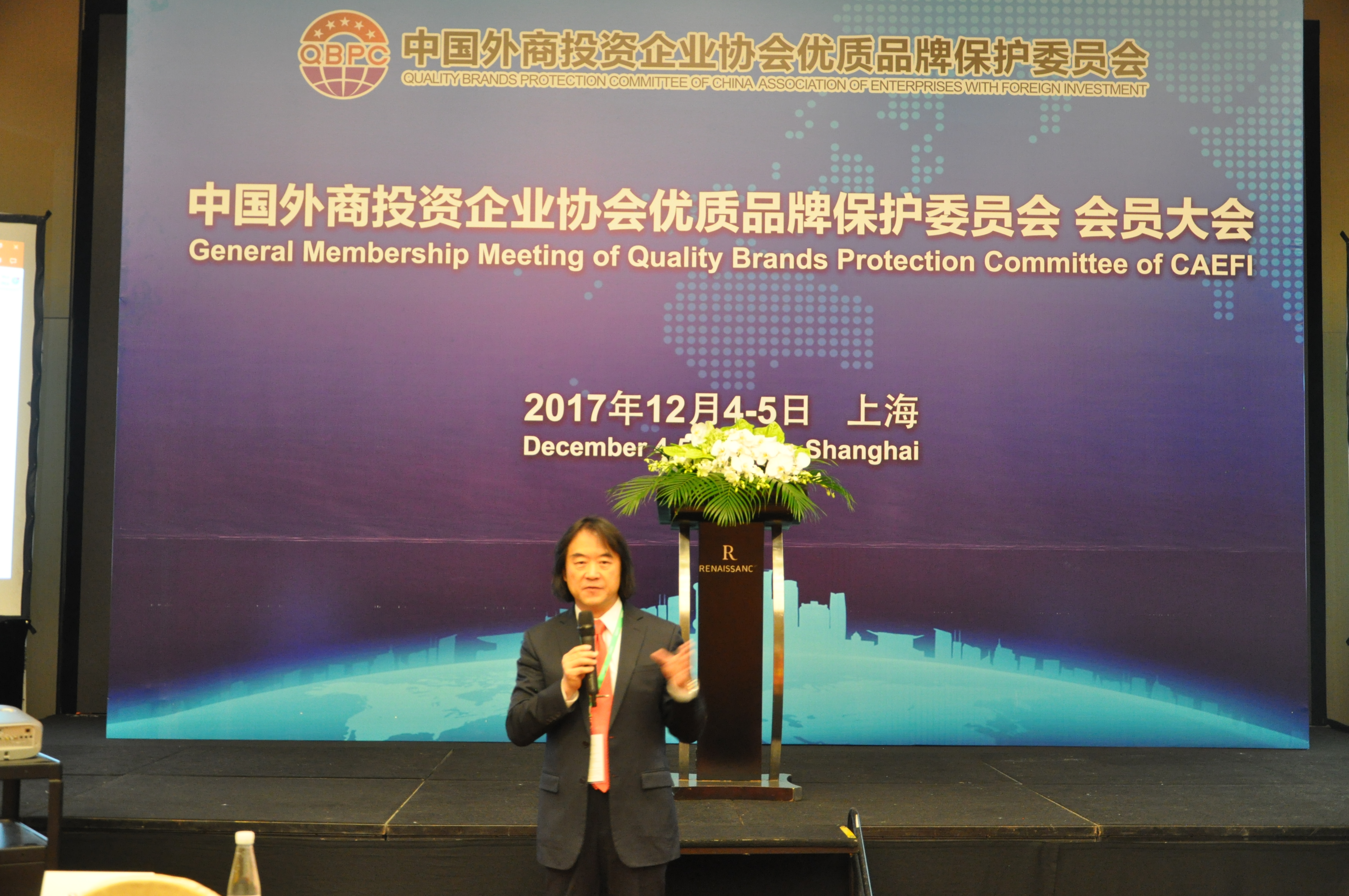
QBPC 2017 December General Membership Meetings Held in Shanghai
Renaissance Shanghai Zhongshan Park Hotel 1018 Changning Road, Shanghai
| Meeting name | Time | Seat remaining | Operation |
|---|
News Release
On Dec. 4 and 5 2017, QBPC December General Membership Meeting (referred as GM Meeting)was held in Shanghai.
Day One
QBPC PIC Luncheon – Patent
Administrative Enforcement & Patent Customs Protection Workshop
Patent administrative enforcement and Customs protection has always been the hottest and most difficult issues that QBPC members paid much attention to. On December 4, 2017, QBPC Patent & Innovation Committee specially invited Eric Liu, from UIP Law Firm, who has extensive patent protection experiences, to conduct a two-hour lecture to share the experiences of patent protection from both jurisprudence analysis and Practical perspectives. QBPC members held warm exchanges with Eric Liu, and actively discussed about the key points and precautions of patent administrative enforcement.
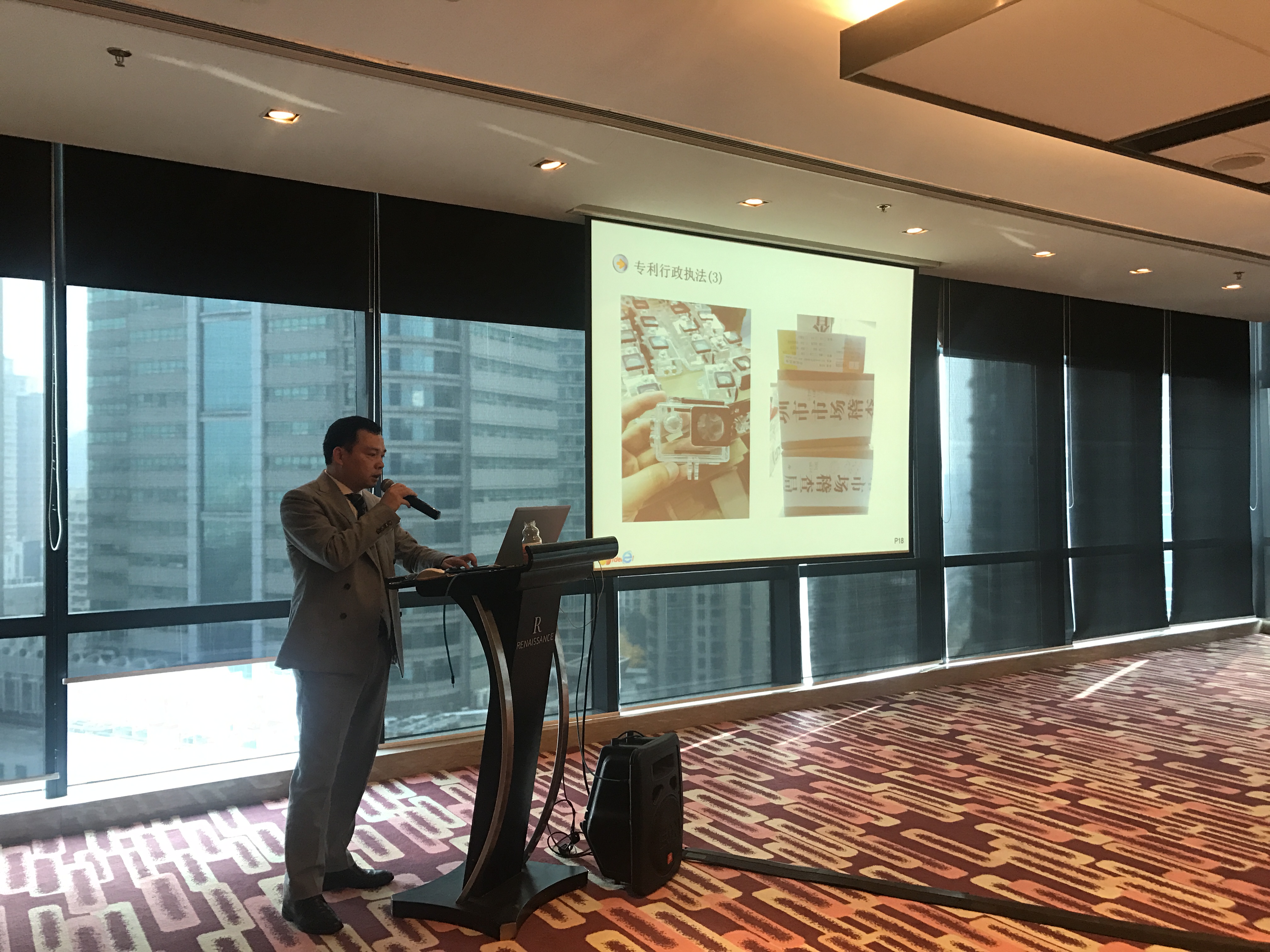
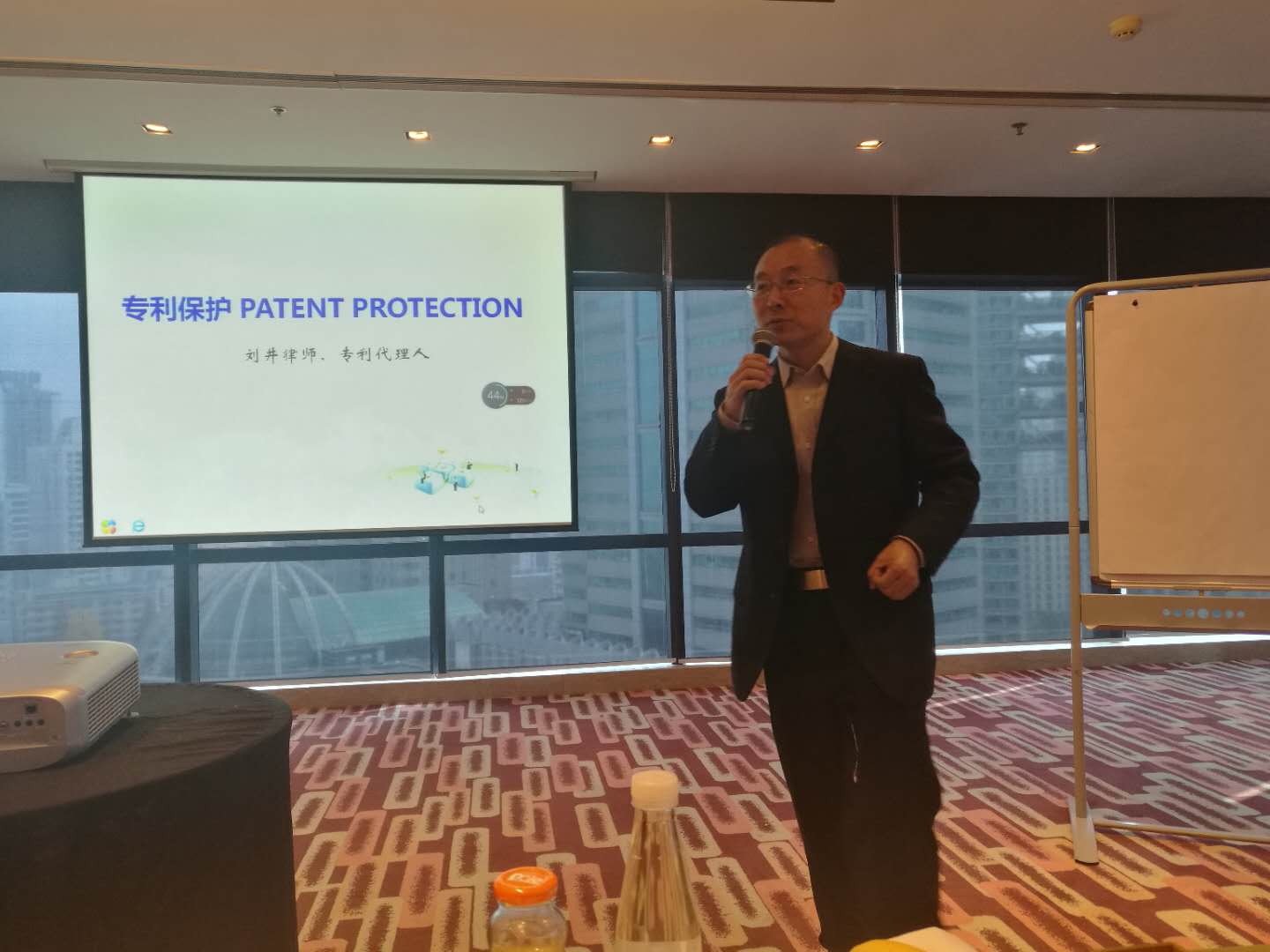
PIC Vice Chairman Deng Jun presided over the luncheon. He said that the draft of the fourth revision of the Patent Law is to further expand the power of patent administrative enforcement authorities. QBPC members would attach more importance to the following questions including how to explore the feasible path of Patent administrative enforcement? How to effectively communicate with IPO/ MSA? How to successfully complete patent administrative enforcement procedures at practical level? How to make full use of patent administrative enforcement to get available evidences that could be further used during the patent litigation? In order to well answer those questions, PIC took the luncheon opportunity to invite Eric Liu, the experts with rich practical experience to give the lecture.
Q&A lasted for about 40 minutes and QBPC members enthusiastically raised a lot of questions: Why it’s best to conduct notarization first? For those targets which were difficult to obtain evidences through notarization, how to effectively conduct on-site surveillance and inspection? How to carry out investigation and evidence collection for the factories suspected of infringing on technological process? How to effectively communicate with patent administrative enforcement agencies? How to conduct the oral examination? When facing administrative lawsuits triggered by patent administrative enforcement activities, how to assist IPO / MSA to properly handle with it? How to use evidences grasped by Patent administrative enforcement for patent infringement civil proceedings? Dozens of QBPC members initiated questions one by one, and got detailed answers from lawyer Liu.
QBPC Auto Industry Working Group( IWG), Food IWG and other 12 IWGs , Best Practice/Enforcement Committee, Customs Committee and other 3 Committees made presentation on 2017 working report. At the end of the first day meeting, QBPC six Committees made respectively brief introduction on 2018 working plan.
Day Two
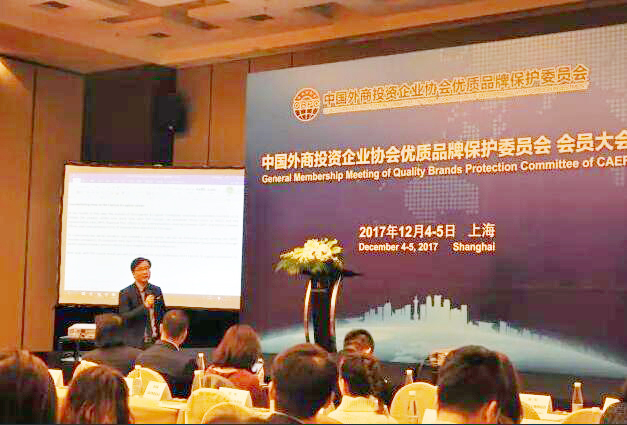




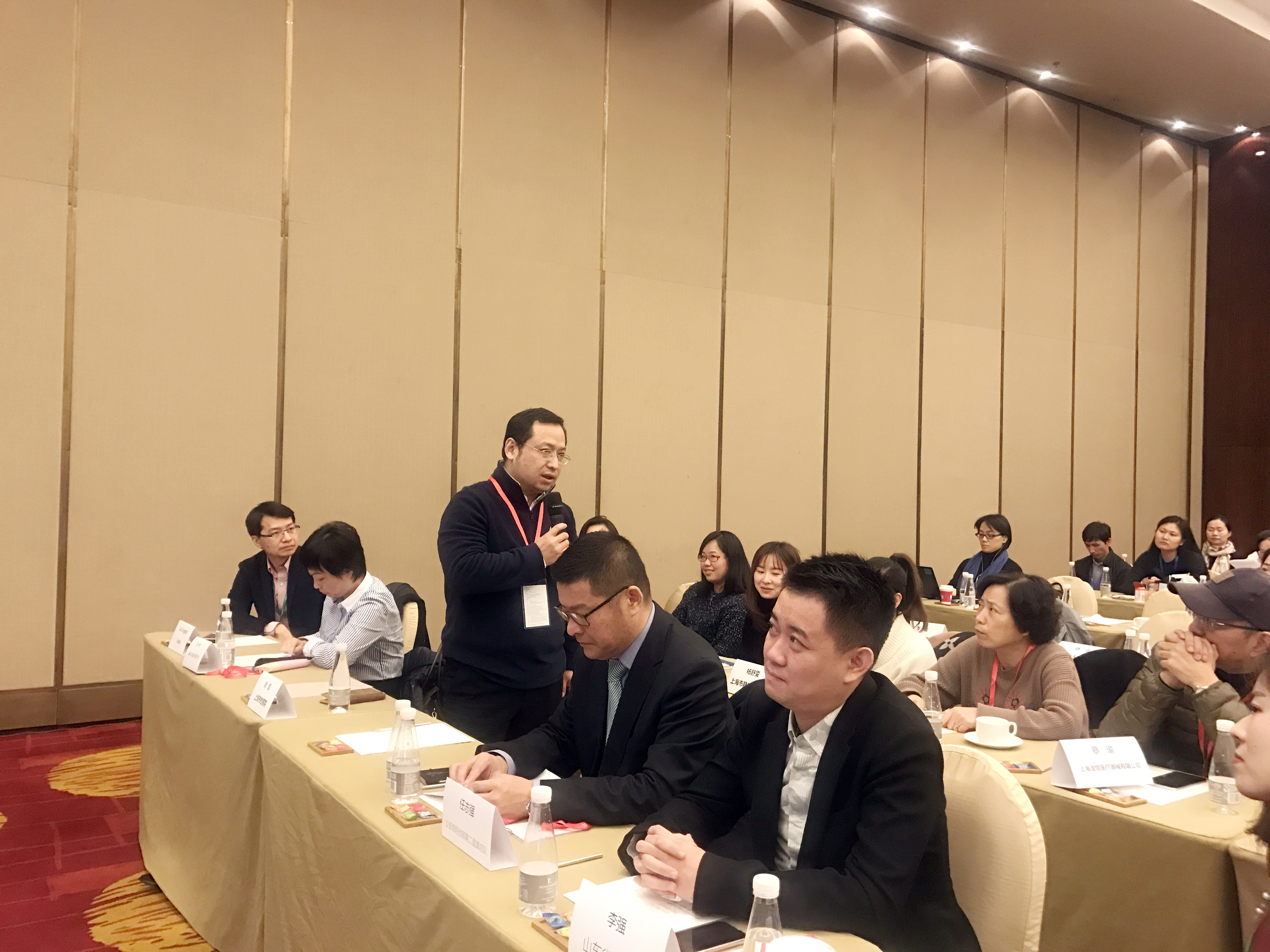
Xiao Kai, Director of Financial Prosecution Division of Shanghai People's Procuratorate, pointed out in his short speech that the procuratorial organs in Shanghai cooperated closely with QBPC, analyzed and resolved legal issues and escorted for the IP. Different opinions as different procuratorates and procurators might hold concerning a specific case, procurators were obligated to fight against infringements and protect IP. Procuratorial organs in Shanghai initially issued Chinese and English Notification on IP Rights and Obligations. And Jing’an District was a pioneer in holding symposiums with enterprises and serving building economy. Favorable results were won, which should also be attributed to QBPC’s support and cooperation. Later, the procuratorial organs would build a prosecution brand concerning people's livelihood, supervise administrative enforcement, resolve public interest litigation issues found in various industries and enter into closer cooperation with enterprises.
Mr. Ren, member of the Party Committee and Director of Political Office of the Economic Crime Investigation Department of Shanghai Municipal Public Security Bureau (ECID), boasts rich theoretical and practical experience, he pointe out that in 2017, more than 800 infringement cases were cracked down and over 1,000 suspects were arrested by the ECID in Shanghai. The success was rooted in the support from all parties. Mr. Ren recognized the Memorandum of Understanding signed between QBPC and the ECID, under which, the two parties arranged meetings regularly, held information briefing, contacted with each other and gave full play to an effective communication channel. The seamless engagement and close cooperation facilitated the case investigation and laid a foundation for effective fighting against infringement.

Ms. Xiang Xin, Special Commissioner in Shanghai of Ministry of Commerce. She’s participant and witness of IP development in China. Xiang Xin pointed out in her speech that leaders of the central government and the State Council always paid high attention to the IP protection work. Wu Yi, the then Vice Premier of the State Council had established the National IP Protection Work Group Office (IP Office) to coordinate with various departments on the IP protection and implement the deployments and decisions of the central government. As an extension of the IP Office under MOFCOM, the Office of the National Leading Group on the Fight Against IPR Infringement and Counterfeiting held working sessions on a quarterly basis to hear the report by each department and set a specific working theme. With a decade of tireless efforts, great progress in IP protection and business environment has been achieved.

Liu Gang, Vice Captain and Li Qiang, Office Director, of the Food , Drug and Environment Crime Investigation Division of the Public Security Department of Shandong Province (referred as FEDCID) attended the meeting. Liu Gang pointed out in his speech that the Party Committee and Government of Shangdong Province paid high attention to food, drug and environment safety. On Aug. 31, 2012, the Food and Drug Investigation Department was formally established by the Public Security Department of Shandong Province. In Jan. 2013, it’s renamed as the Food, Drug and Environment Crime Investigation Department by adding the function of fighting against environmental crimes, proving to be the first specialized organ fighting against food, drug and environmental crimes and the youngest police division. The Memorandum of Understanding signed and the Exchange & Training Workshop held recently marked a substantive and practical cooperation in terms of implementing food and drug IP criminal protection between FDECID and QBPC.
Liu Gang also introduced the working theory, progress and results of the FDECID. He pointed out that this Member Meeting witnessed the third interaction between the two parties, on the basis of which, the foundation for the future practical cooperation would be further enhanced, and the capability and qualification of Shandong public security organs in food and drug IP criminal protection would be improved to build a brand featuring zero tolerance of food and drug IP crimes.

Huang Wushuang, Professor of East China University of Political Science and Law shared his feelings and experiences with Interpretation of the New Anti-Unfair Competition Law. Huang Wushuang took the significant change of the purpose of the law and changes of judgment standards of unfair competitions as indexes, and a mass of cases as the basis to mobilize and activate the audiences. When interpreting the categorization of unfair competitions, Huang Wushuang laid the emphasis on business practice and unfair means by combining with real cases, which impressed audiences a lot.
Highlights in Shanghai is absolutely not a brag! The meeting has ended, but the guests’ professional share and interaction with audiences never end. QBPC hosts three QBPC General Membership Meetings every year. We expect more members and more guests with more exciting speeches! See you in the next QBPC General Membership Meeting!

